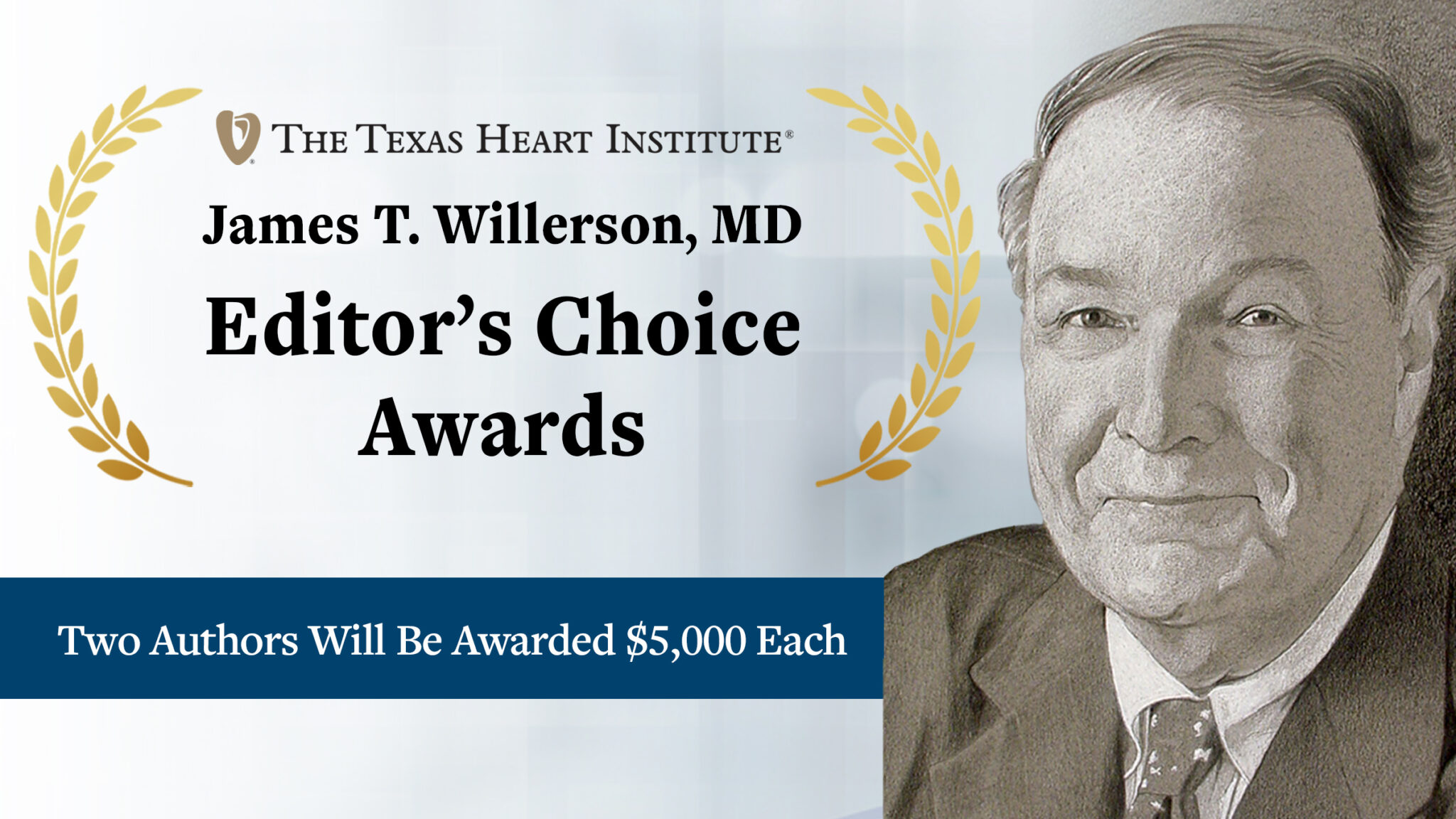
As it celebrates 50 years of supporting medical education, The Texas Heart Institute Journal is soliciting articles to be considered for the James T. Willerson, MD, Editor’s Choice Award. The Journal is a peer-reviewed digital publication that serves as a global platform for physicians, scientists, and healthcare professionals to share their advancements in the field of cardiovascular medicine. The publication award was created to honor the former Editor-in-Chief and Institute President Emeritus after his passing in 2020.

Dr. Willerson was committed to providing physicians and healthcare professionals with information related to all aspects of treating patients who have cardiovascular disease. His standards for excellence in research and scientific publishing were unsurpassed, and The Journal’s readership and reach have continued to expand on the strength of the foundation he and his predecessors built. The awards are made possible by The Texas Heart Institute Board of Trustees and a gift from Morton Cohn. In June 2022, Editor-in-Chief Zvonimir Krajcer, MD, and President and CEO Joseph G. Rogers, MD, presented the inaugural Editor’s Choice Awards to the authors of three outstanding Original Research articles published in The Journal in 2021.
The Journal is once again inviting authors to submit their articles for award consideration:
- Two(2) $5,000 awards will be made annually, based on the article publication date.
- Open to all authors publishing in The Texas Heart Institute Journal
- One awardee will be an early-career author.*
- Clinical Investigation, Laboratory Investigation, and Systematic Review article types are eligible.
This award honors the legacy of Dr. Willerson and his unwavering dedication to advancing the field of cardiovascular medicine and his professional pursuits to accurately diagnose, treat, and prevent cardiovascular disease.
Eligibility Criteria
- The article must be published in The Texas Heart Institute Journal during the award year (i.e. an article published in THIJ in 2024 which meets all criteria is eligible for the 2024 award).
- The candidate must be the primary author of the paper and must meet the eligibility criteria for authorship (read Who Is an Author?).
- The article type must be Clinical Investigation, Laboratory Investigation, or Systematic Review.
- The paper must be written in biomedical manuscript format and adhere to the guidelines detailed in Information for Authors. Articles will also be judged on organization, logic, and writing style.
*An early-career author is defined as a
- Student (for example, enrolled in medical school)
- Resident-in-training
- Current fellow or an individual who completed a fellowship in the prior 2 years.
Past Recipients
Continuous-Flow Left Ventricular Assist Device Support in Patients with Ischemic Versus Nonischemic Cardiomyopathy
Chou BP, Critsinelis A, Lamba HK, Long G, Civitello AB, Delgado RM
“Simple” Transcatheter Aortic Valve Replacement With Conscious Sedation: Safety and Effectiveness in Real-World Practice
Postalian A, Strickman NE, Costello BT, Dougherty KG, Krajcer Z.
Ultrafast Computation of Left Ventricular Ejection Fraction by Using Temporal Intensity Variation in Cine Cardiac Magnetic Resonance
Pednekar AS, Cheong BYC, Muthupillai R.
FAQ






